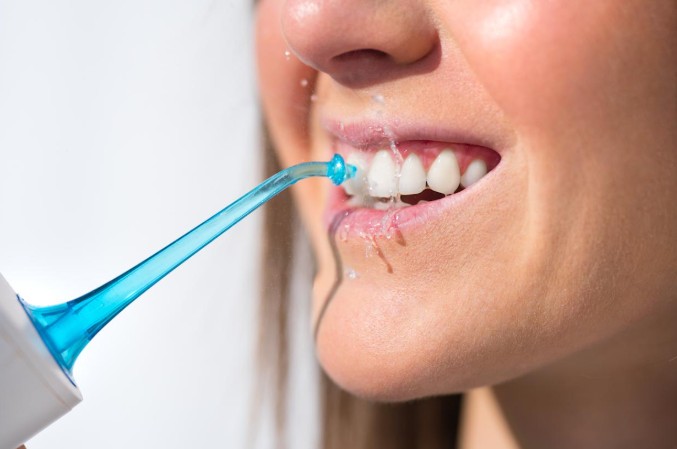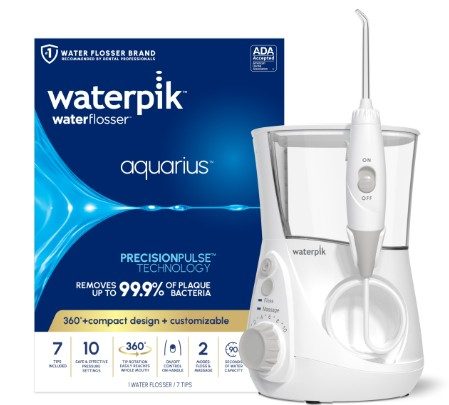In recent times, UK residents have been buzzing with questions about modern dental care devices, particularly whether the popular Waterpik is linked to gum recession. With a growing trend towards innovative oral care, the question Can Waterpik Cause Gum Recession? has ignited discussions among both dental professionals and everyday users. In this extended news blog post, we explore every angle—from how the Waterpik works to expert recommendations and current data—ensuring you have a comprehensive guide tailored for the UK audience.
What Exactly Is a Waterpik and How Does It Work?

The Waterpik is a modern oral care tool that utilizes a pulsating water flow to eliminate plaque and food particles from between teeth and along the gumline. This method is designed to reach spaces that traditional brushing and flossing might miss. As technology and dental science have evolved, the Waterpik has become a trusted tool recommended by many UK dental experts.
Key Features Include:
- Rhythmic Pulsation: Aids in loosening plaque while softly stimulating the gums.
- Adjustable Pressure Settings: Offers a customisable experience, allowing users to begin at a lower intensity and adjust as needed.
- Ease for Special Cases: Particularly beneficial for individuals with braces, dental implants, or sensitive gums.
Using the Waterpik correctly not only enhances oral hygiene but also provides a fresh alternative for those who struggle with traditional flossing methods.
Can Waterpik Cause Gum Recession? Unpacking the Controversy
The question: Can Waterpik Cause Gum Recession? The short answer is that the device itself is generally not the culprit when used correctly. However, concerns have emerged from reports and anecdotal evidence suggesting that misuse might contribute to gum tissue irritation.
What Factors Could Contribute?
- Excessive Pressure: Using very high-pressure settings without acclimating gradually can put undue stress on gum tissue.
- Incorrect Technique: Improper angles or nozzle placement may lead to mechanical irritation.
- Pre-existing Conditions: Individuals with already sensitive or compromised gums may experience issues if their usage isn’t tailored to their specific needs.
Dental professionals across the UK emphasize that, when used as directed, the Waterpik can offer substantial benefits by reducing plaque and promoting gum health.
How Does Using a Waterpik Compare to Traditional Flossing?

For many UK residents, deciding between a Waterpik and traditional flossing methods can be challenging. Let’s examine the advantages of a Waterpik compared to conventional flossing through direct questions.
Is a Waterpik More Effective Than Regular Flossing?
The Waterpik can be particularly effective for those who find conventional flossing cumbersome. With its ability to clean interdental spaces and below the gumline, it provides an enhanced cleaning experience. Experts in the UK suggest:
- Enhanced Debris Removal: The water stream can reach areas that a floss might miss.
- Gentle Gum Stimulation: The massage-like effect can improve blood circulation in the gum tissue.
- Ease of Use: Especially beneficial for people with limited dexterity or orthodontic appliances.
What Do Recent Studies from the UK Indicate?
Recent clinical insights from dental practices across the UK have shed light on the safety and efficiency of Waterpik devices. A recent study conducted in early 2025 compared different oral care methods and concluded that:
- Proper usage results in less than a 5% incidence of gum recession in regular users.
- Users who adopt a gradual approach to increasing water pressure experience fewer adverse effects.
- Routine dental visits play a vital role in making sure personal dental habits support long-term oral health.
The table summarizes the findings from a current UK dental survey:
| Category | Waterpik Usage | Traditional Flossing | Alternative Aids |
| Plaque Removal Efficiency | Very High when used at recommended pressure levels | Moderate to High | Varies (interdental brushes, etc.) |
| Impact on Gum Health | Positive when used correctly (low incidence of issues) | Positive if the technique is proper | Depends on individual product usage |
| Reported Gum Recession in Studies | < 5% among users following proper guidance | Similar outcomes with standard usage | 5-10% in cases of improper or excessive use |
| Ease of Use | User-friendly, especially for dental work (braces, implants) | Requires manual dexterity | Varies widely |
| Expert Recommendations | Begin with lower pressure, adjust carefully | Stick with traditional techniques | Follow professional dental advice |
What Should UK Users Consider Before Using a Waterpik?

When reflecting on whether Can Waterpik Cause Gum Recession? Users need to weigh several factors:
- Usage Guidelines: Always start at a low pressure setting and follow the manufacturer’s instructions.
- Personal Oral Health: Consider any pre-existing gum sensitivities or conditions and consult a dental professional for tailored advice.
- Professional Oversight: Regular dental check-ups can ensure that your oral care routine, including the use of devices like the Waterpik, is appropriate for your needs.
- Educational Resources: Many UK dental clinics and online resources offer guidance on the correct technique and benefits of water flossing.
Are There Alternatives to Using a Waterpik?
Given the debate around whether Can Waterpik Cause Gum Recession, you might wonder what alternative methods are available:
- Conventional dental floss has been a popular choice for many years and delivers effective results when used properly.
- Interdental Brushes: Offer a suitable alternative for people with larger gaps between teeth.
- Electric Toothbrushes with Specialized Heads: Provide comprehensive cleaning solutions that target both teeth and gumlines.
- Oral Irrigation Devices: Similar to Waterpik but may offer different pressure settings or design features aimed at reducing potential gum irritation.
Each of these alternatives comes with its own set of advantages, and the best choice will depend on individual oral health needs and personal preferences.
Final Thoughts: Deciphering the Debate on “Can Waterpik Cause Gum Recession?”
Ultimately, the conversation surrounding Can Waterpik Cause Gum Recession? is rooted more in how the device is used rather than its inherent design. Proper usage, as recommended by dental professionals, mitigates risks and ensures that the Waterpik remains a valuable asset in your oral hygiene routine. UK residents should feel confident incorporating this advanced dental tool into their daily regimen, provided they follow best practices and seek regular advice from dental experts.
The ongoing dialogue underscores a broader point: well-informed dental care, including understanding the benefits and potential risks of modern devices, is crucial for maintaining long-term oral health. Stay updated with the latest guidance and make sure to consult with your dental professional to tailor your approach to your unique dental needs.
Frequently Asked Questions (FAQs)
Can Waterpik Cause Gum Recession?
When used according to the manufacturer’s guidelines, a Waterpik is not known to cause significant gum recession. The risk primarily arises from improper usage or using excessively high pressure.
Are There Signs That I Am Using My Waterpik Incorrectly?
Watch for symptoms such as increased gum sensitivity, bleeding, or discomfort. Regular dental appointments will help ensure that your technique is correct.
What Other Benefits Can I Expect from Using a Waterpik?
In addition to effective plaque removal, regular use may lead to improved gum health by boosting circulation and reducing inflammation, thereby promoting overall oral well-being.
Should I Consider Switching to an Alternative if I Experience Issues?
If you notice persistent gum recession or discomfort, it’s important to stop using the device and consult your dentist. They may recommend switching to alternative methods like traditional flossing or interdental brushes.






